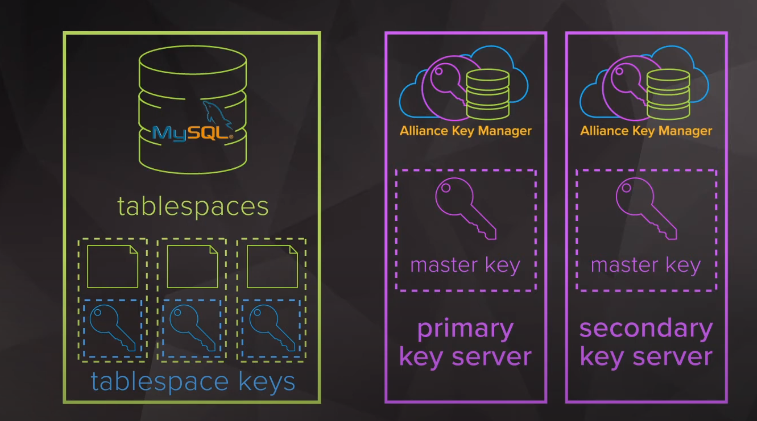Understanding MySQL and Data Encryption
MySQL is an open-source relational database management system widely used for storing and retrieving structured data. While MySQL provides robust security features, such as user authentication and access control, it does not inherently encrypt all data by default. Encryption is an additional layer of security that can be implemented to protect sensitive information from unauthorized access.
Encryption Methods in MySQL

MySQL offers several encryption methods that can be utilized to secure data at rest and in transit. Let’s explore these methods in detail:
Encryption at Rest in MySQL
To encrypt data at rest in MySQL, you can leverage various disk-level encryption solutions or utilize MySQL’s built-in encryption functions. One approach is to use full-disk encryption provided by the underlying operating system or storage system. This ensures that all data stored on the disk is encrypted, including the MySQL data files.
Alternatively, MySQL provides encryption functions, such as AES_ENCRYPT and AES_DECRYPT, which allows you to encrypt specific columns or portions of data within your database. By selectively encrypting sensitive data, you can maintain a balance between security and performance.
Encryption in Transit with MySQL
When data is transmitted over a network, it is vulnerable to interception and eavesdropping. To secure data in transit with MySQL, you can enable SSL/TLS (Secure Sockets Layer/Transport Layer Security) encryption. SSL/TLS encrypts the communication channel between the MySQL client and server, ensuring that data remains confidential and tamper-proof during transmission.
Enabling SSL/TLS encryption in MySQL involves configuring the server to use SSL certificates and configuring the client to connect using SSL. By establishing an encrypted connection, you add an extra layer of protection to prevent unauthorized access to data while it is being transferred.
Key Management in MySQL Encryption

In MySQL encryption, proper key management is essential to ensure the security and integrity of encrypted data. Encryption keys are used to encrypt and decrypt data and their protection is crucial to prevent unauthorized access to sensitive information.
MySQL provides various options for key management, including keyring plugins and key management services. Keyring plugins allow you to store encryption keys securely within the MySQL server, while key management services offer centralized key management and rotation capabilities.
Performance Considerations with MySQL Encryption
While encryption enhances data security, it can also impact the performance of MySQL. Encrypting and decrypting data requires additional processing power and can introduce overhead. It is important to consider the performance implications when implementing encryption in MySQL.
To mitigate performance issues, you can employ strategies such as selectively encrypting sensitive data, optimizing queries, and utilizing hardware acceleration features if available. Additionally, keeping your MySQL server and hardware up to date can ensure optimal performance while maintaining data security.
Best Practices for Securing MySQL Data
To ensure the highest level of security for your MySQL data, consider the following best practices:
- Regularly update MySQL to benefit from the latest security enhancements and bug fixes.
- Implement strong user authentication and access control mechanisms.
- Encrypt sensitive data at rest using disk-level encryption or MySQL’s built-in encryption functions.
- Enable SSL/TLS encryption for data transmitted over networks.
- Use secure key management practices to safeguard encryption keys.
By following these best practices, you can significantly enhance the security posture of your MySQL database and protect sensitive information from unauthorized access.
Frequently Asked Questions
Can I encrypt all data in MySQL by default?
MySQL does not provide a built-in option to encrypt all data by default. However, you can selectively encrypt sensitive data using encryption functions or employ disk-level encryption solutions for data at rest.
Is SSL/TLS encryption necessary for securing MySQL connections?

While SSL/TLS encryption is not mandatory, enabling it adds an extra layer of security by encrypting the communication channel between the MySQL client and server. It is highly recommended, especially when data is transmitted over untrusted networks.
How should I protect encryption keys in MySQL?
Protecting encryption keys is crucial for maintaining the security of encrypted data. MySQL provides options such as keyring plugins and key management services to securely store and manage encryption keys.
Does MySQL encryption affect database performance?
Encrypting and decrypting data in MySQL can introduce some performance overhead. However, by employing optimization techniques and considering hardware acceleration, you can minimize the impact on performance.
What are the best practices for securing MySQL data?
Best practices include regularly updating MySQL, implementing strong user authentication, encrypting sensitive data at rest and in transit, and following secure key management practices.
Conclusion
In conclusion, while MySQL provides powerful features for managing relational databases, it does not automatically encrypt all data. However, MySQL offers encryption capabilities for both data at rest and in transit. By leveraging encryption methods, implementing proper key management, and following best practices, you can enhance the security of your MySQL database and protect your valuable data from unauthorized access.
